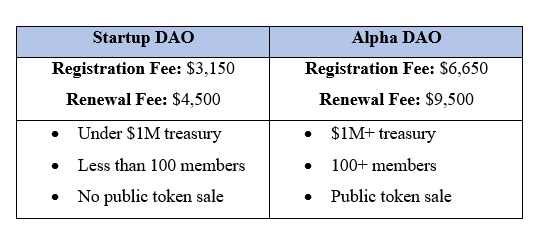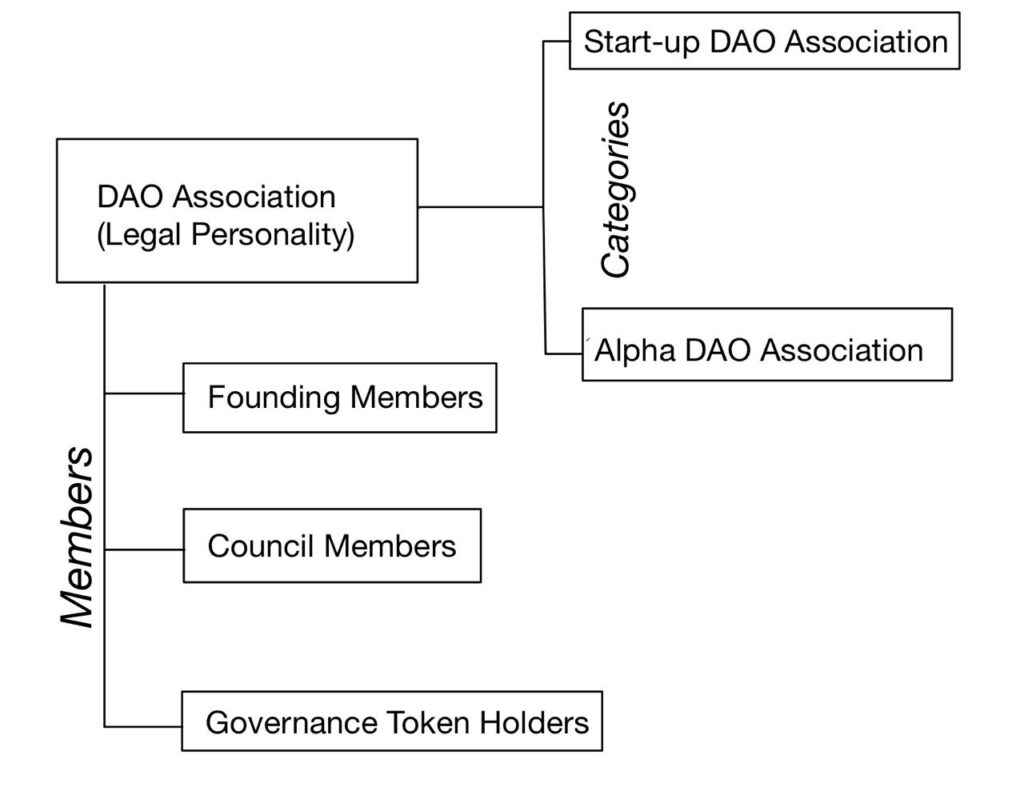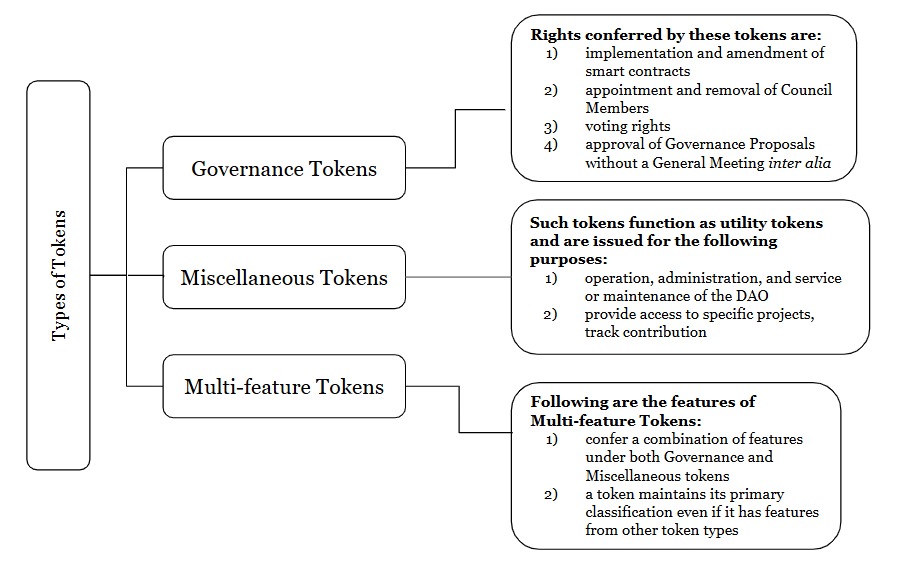INTRODUCTION
Decentralized Autonomous Organizations (“DAOs”) have de facto existed within the blockchain and digital asset space for some time, driving innovation and decentralized governance. However, these entities were largely bereft of legal recognition, operating in a regulatory void without a defined legal personality. As a result, DAOs have been unable to fully realize their potential within traditional legal frameworks, lacking the legal standing typically afforded to corporate entities.
With the introduction of the DAO Association Regulations (“Regulations”) by the Ras Al Khaimah Digital Asset Oasis Authority (“RAK DAO” or “Authority”), DAOs can now establish themselves as formal corporate entities within the RAK DAO region. This legal framework grants DAOs legal sanctity by adding features such as structural clarity, governance mechanisms, and enhanced accountability. These provisions allow DAOs to operate more effectively within the traditional legal system, while still retaining the digital, decentralized characteristics that define their unique operational model. A brief summary of the Regulation is provided as below-mentioned:
What is the legal structure of a DAO under the Regulations?
The legal personality of a DAO, once incorporated under the Regulations, is that of a body corporate with its own name and distinct legal existence from its members and token holders, and is regarded as a DAO Association. From the date of incorporation, a DAO is capable of exercising all functions of an incorporated entity, entering into legally binding obligations, acquiring and disposing of assets, and bearing its own liabilities.
Under the current regime, two categories of DAOs have been envisaged, i.e.,
- Alpha DAO Association; and
- Start-up DAO Association.
It is yet to be notified what shall constitute the parameters to be considered for a DAO to fall under either of the categories, however, a brief distinction can be made on the following basis:

What all categories of members a DAO has?
Under the scope of the Regulations, a DAO essentially has three categories of members: (i) Founding members- who are responsible for the incorporation of DAO; (ii) Council members- who are responsible for overseeing the operations and taking final decisions by voting for the DAO; and (iii) Governance Token Holders- who are responsible for taking internal decisions for the DAO including appointment of council members.
What all categories of members a DAO has?
Under the scope of the Regulations, a DAO essentially has three categories of members: (i) Founding members- who are responsible for the incorporation of DAO; (ii) Council members- who are responsible for overseeing the operations and taking final decisions by voting for the DAO; and (iii) Governance Token Holders- who are responsible for taking internal decisions for the DAO including appointment of council members.

- How can a DAO be formed?
Any application may be made for incorporation of a DAO and registering it as a DAO Association under the Regulations by providing the documents and information required under Clause 9 of the Regulations, which broadly includes:
- Founding Members: At least two Founding Members must apply for the incorporation of the DAO, and provide necessary documents in relation to them and furnish the Guarantee as prescribed by the Registrar.
- Essential Information: The application shall include inter alia the following details:
- The proposed name and nature of activities of the DAO.
- Governance structure, including decision-making rights and dispute resolution mechanisms.
- Details of the Founding Members (both natural persons and corporate entities), along with the roles of key individuals such as Council Members and Managers.
- Information on the DAO’s token mechanisms, treasury management policies, and the use of smart contracts.
- Compliance and Business Plan: The application must also include a business plan and a compliance note, confirming adherence to the Regulations and that the DAO will operate within the scope of its intended activities and trade license.
Can a DAO issue tokens?
A DAO registered with the Authority can issue a new class of tokens after submitting a white paper (or equivalent document) to the Registrar, outlining the structure and characteristics of the proposed tokens, including distribution, vesting, supply, and utility or governance features. Additionally, the DAO must provide a legal opinion confirming that the token complies with all applicable UAE laws, does not qualify as a security token under UAE federal law, and that the DAO’s activities comply with relevant regulations. A cybersecurity audit of the smart contracts related to the operation or distribution of the tokens is also required, along with any other documents the Registrar may prescribe.
How will a DAO be governed ?
Internal Constitution
The DAO shall have its own constitution, Memorandum of Association and DAO Association register which shall govern the internal governance and shall be approved by the Registrar.
Governance token holders
The rights and duties of the members of the DAO shall be conferred on the basis of the governance token holding. The holders of the governance tokens of the DAO shall the rights related including but not to implementation and amendment of Smart Contracts, election and removal of Council Members, appointment of Alternate Council Members, approval of Governance Proposals without a General Meeting, appointment of a Manager or Registered Agent (if not a Startup DAO), amendment of the Constitution, and voting rights of Governance Tokens.
The governance token holders are also entitled to initiate any proposal which may relate to the subjects envisaged under the constitution of the DAO and may include initiation of a new project, termination of an existing project, manage of funds, protocol development, etc.
Council Members
Council members shall convene a general meeting at the request of any governance token holder eligible under the constitution to take up a governance proposal.
Can a DAO issue tokens other than governance tokens?
Yes, a DAO can also issue miscellaneous tokens which can relate to operations, administration, provision of service or maintenance of DAOs.

Striking off and Winding Up.
The registrar may strike off the name of the DAO from the register for the reasons provided in the Regulation. The DAO registered with the Authority may also choose to voluntarily wind up its operations by passing a governance resolution as per the terms of the constitution.
In case the DAO’s name is striked off or if it is wound up, the distribution of the assets for the DAO will be in the following order: a) the amount RAK DAO Authority; b) cost of liquidation; c) creditors; d) founding members.
Accountability of DAO and members thereof.
The Regulations impose penalties on members who contravene its rules. A contravention may occur if a person does something prohibited, fails to do something required, or otherwise violates a regulation, potentially resulting in fines as will be outlined in an official schedule to be issued by the Authority. Additionally, if someone knowingly participates in or supports a contravention committed by another person, both the involved and the original violator may face penalties. This applies to DAO members or officers who knowingly engage in violations of Regulations, underscoring the DAO’s strict approach to accountability and compliance.
Albeit, the Clause 8 of the Regulations specifies that the liability of DAO shall not be the liability of its members, however, if the DAO or its members violate Regulations, the Registrar may impose penalties, which can include terminating the DAO’s trade license, issuing a fine, or enforcing other penalties as deemed appropriate.
Balancing Off-Chain and On-Chain ecosystems.
The DAO’s off-chain operations shall be represented and managed the:
- Council Members: The Regulations designates the role of representing DAO to third-parties, creditors, counterparties, other business associations, government authority, etc. to the Council Members.
- Manager or Registered Agent: For the purposes of ensuring administrative and compliance tasks as provided in the regulations and for acting as a point of contact for the Registrar, the DAO shall appoint a Manager or Registered Agent as mentioned below.
Requirement to appoint an Auditor and a Manager or Registered Agent.
The DAO shall appoint an auditor after passing a governance proposal in respect of the same.
A DAO is also mandatorily required to appoint either a Manager or a Registered Agent to operate within the jurisdiction. The appointed Manager or Registered Agent is responsible for ensuring compliance with the Regulations, handling the DAO’s administrative tasks, and acting as the point of contact for the Registrar receiving legal notices, submitting required filings, etc. After obtaining approval from the Registrar, a DAO can appoint any natural person who is a resident of UAE to act as a manager on its behalf. However, for the DAOs who do not have local presence, the Regulations provide for appointment of Registered Agent which shall be a corporate service provider registered with the Registrar and authorized to act as an agent on behalf of DAOs.
